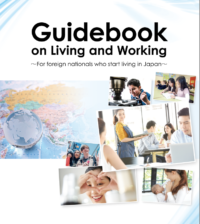- Belgium comes to Yamashita Park
- Residential Villa in Phuket Entices Remote Workers With Long-Stay Rates
- Rare pieces of French glass art at the Mirai Museum of Art
- Feast on fresh fish and seafood at the 2024 ‘Sakana’ Festival
- Would you like to ride in a Louis Vuitton gondola lift?
- Naked Snow Aquarium
- Festive lights at Yomiuriland will get you feeling the holiday vibes
Community News
Over the years, Emirates Airlines has consistently won awards for overall excellence in service. Always ahead of the race in keeping passengers’ comfort a priority, global travelers to Dubai with small kids will be delighted to know that the airlines offers free use of strollers at Eithad Terminal 3 of the Dubai International airport or right upon exit from the plane. Emirates also has Unaccompanied Minor programs for children traveling without an adult. The program does not apply to certain countries of destination. Check out the homepage for the latest information. www.emirates.com/jp/englishOther airports that offer free use of strollers are Copenhagen Airport at the transit area and Terminal 1D of Indira Gandhi International Airport that has kids’ play and rest areas. Frankfurt and Hong Kong airports rent out strollers but needs to be requested in advance.
In a recent online survey conducted nationwide by Kirin Brewery for eight straight days, 18,800 valid responses from couples in the 30s and 40s age group reveal that husbands in Okinawa are most helpful with housework. Compared to 40 percent national average, 51.5 percent of housewives who responded that their husbands cook were from Okinawa. 45 percent of male and female surveyed who cook or prepare food with their partners are from Okinawa. Kirin says “cooking together seems to positively affect matrimonial harmony”. No wonder Okinawan couples rank high in terms of marital bliss.Next to Okinawa was Aomori at 21.8 percent, Kochi at 20.6% percent, both Niigata and Tokushima at 19.4 percent and at the bottom was Gifu prefecture at 14.6 percent.
According to the Ministry of Internal Affairs and Communications of Japan, baby monitors specifically made in the United States with a 900 MHZ range is strictly not allowed for use in Japan. Offenders can be subject to a million yen fine or one year imprisonment.Other devices that fall under the prohibited category are cell phones, radio-controlled model airplanes, cordless phones (900 MHZ range), low power handheld radios (Family Radio Service and General Mobile Radio Service), among others. The Radio Law of Japan considers the use of such devices may cause harmful interference to emergency and critical communication links.
www.tele.soumu.go.jp/e/index.htm
The Ministry of Health Labor and Welfare Ministry announced that starting July 1st, 2012, Japanese restaurants are prohibited by law from selling raw beef liver (or beef liver sashimi) to consumers as a result of the findings made by food safety experts showing its potential health risk to humans if eaten raw.The Japanese government implemented strict measures on food safety following a food poisoning incident caused by E-coli contamination in April that killed five people including a six-year-old boy. Later, it has affected 180 more after eating raw beef liver served at a Yakiniku restaurant.
www.mhlw.go.jp/english/
Nature, an international journal of science, reported that Japanese stem cell biologist Yoshiki Sasai of the RIKEN Center for Developmental Biology located in Kobe has made a breakthrough in science. Through a structure Sasai developed, he was able to grow the precursor of a human eye from stem cells in the laboratory. Last month, Sasai presented his findings to the researchers at the International Society for Stem Cell Research’s annual meeting held in Yokohama. The achievement raised hopes that one day doctors may be able to rescue damaged eyes.
From July 1, 2012, cocktail lovers are invited to try an original concoction of gin, sakura and passion fruit liqueur named Nadeshiko Cocktail (¥2,100) at the bar of Mandarin Hotel Tokyo as a send-off cheer to Nadeshiko, the Japanese National Football team as they head off to the London Olympics.For information and reservations, please call (03) 3270-8188 or e-mail motyo-fbres@mohg.com.* The price includes 5% consumption tax and is subject to 13% service charge
Since May 2012, Japan’s Ministry of Justice, Immigration Bureau has been accepting applications for points-based preferential immigration treatment of highly skilled professionals. Similar to the point system in countries like Canada and Australia for migrating skilled workers, Japan’s aim is to promote acceptance of highly skilled professionals from other countries in order to contribute to the economic growth and boost demand and employment in the country. The Ministry classifies highly skilled labour into three categories: Academic Research, Advanced specialization/Technical, and Business Management.The preferential treatment includes permission to engage in multiple activities during the stay in Japan, a 5-year visa term, relaxed requirements in changing to permanent resident status (subject to criteria), preferential treatment in immigration and stay procedures, permission of spouse to work, permission to bring a parent as well as to employ a domestic helper, subject to certain conditions.
www.immi-moj.go.jp/english/topics/120502_en.html











